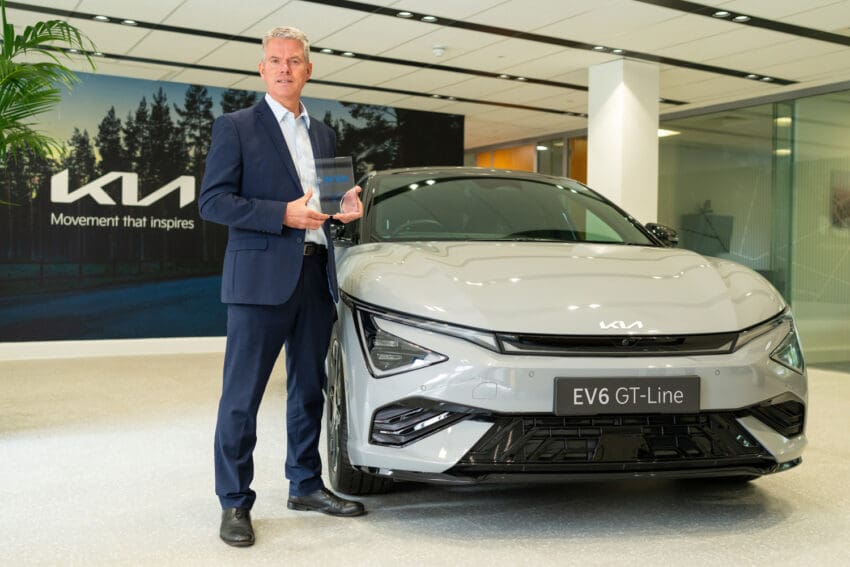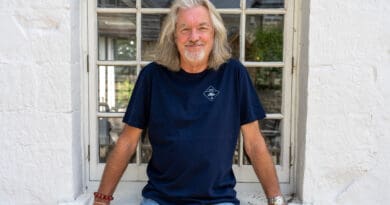Paul Philpott: Government must send a message that now is the time for EVs
We speak Paul Philpott, head of Kia UK, about the company’s EV mission, the ZEV mandate and the threat of new Chinese EV makers
EV Powered: Kia is one of the brands that seems to be leading the way on EVs, so could you fill us in on Kia’s EV strategy?
Paul Philpott: Kia has been making EVs for nearly 10 years. Our first EV – Soul EV, was launched in 2014. So that 10 years of learning is gradually bringing more and more EVs to market – with Niro EV, with EV6, with EV9, and now we bring EV3. This is all part of our Plan S strategy to progressively move towards full electrification. We have two more EVs to launch beyond EV3 next year. And we’ve stated quite clearly that by 2027, we will have seven EVs on sale here.
And that will represent more than half of our product range. So everything’s got to be product-led and within that there are a couple of key factors. One is range, and the other is charging speed. Because if you can crack those two, you overcome a lot of the barriers that many customers still have to making the big decision to move from a petrol or a diesel car to an electric car.
And we’re progressing step by step through that strategy. I think EV3 is a really important car for us. It’s our lowest price EV. And with a range of 375 miles, the interior space and technology that’s within it, we think it’s a very competitive proposition and will be the key car next year for achieving next year’s ZEV mandate.
EVP: On the ZEV mandate, how secure is Kia’s position this year and how are you looking for the next few years?
Paul Philpott: We’re confident of hitting ZEV mandate this year. Launching EV3 comes at a good time, and next year we get the full-year effect of EV3, plus EV4 and EV5 in the second half of next year.
All of the modelling that we’ve done says that we’re on track to achieve our ZEV mandate target again next year. Then with EV2 and other products coming, what we can see in the pipeline would indicate that we’re good for ZEV mandate targets. Obviously in the latter years, as you get towards the 80% by 2030, we’ve got to still work at that pretty hard. But we’re broadly on track right now.
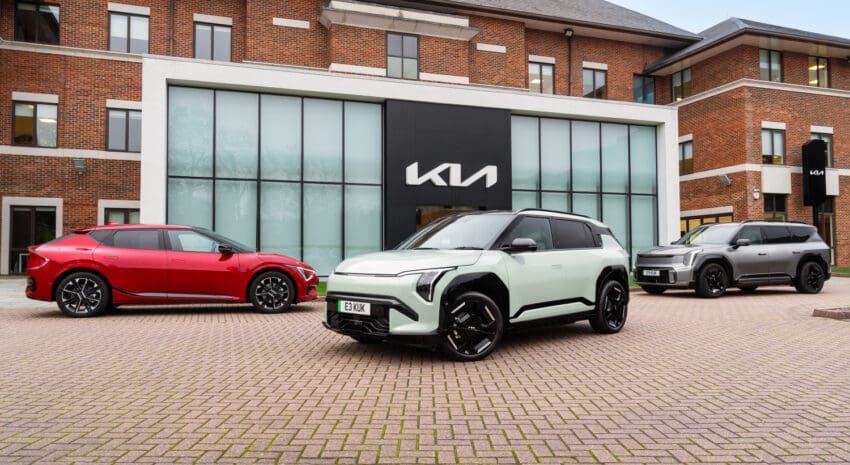
EVP: And is that through pure BEV sales or is that through BEV and carbon trading credits?
Paul Philpott: It’s using all of the flexibilities that are given to manufacturers in the early years, which were a key part of the negotiation when the mandate was created. It was understood that those early years would be some of the toughest years as the charging infrastructure was put in place.
EVP: More broadly on the ZEV market, different manufacturers have quite different opinions on whether it’s the right thing at the right time, whether the levels are right and whether it’s attainable. Where does Kia stand on the ZEV mandate?
Paul Philpott: I think first of all we still need clarity over 2030 or 2035 at the moment. The one piece of clarity I have is given to me by the ZEV mandate, and that says I need to be at 80% EV by 2030. At one stage that was 100%. Or was it? I don’t know.
There’s still that confusion. What can you sell between 2030 and 2035? The new government haven’t yet confirmed what that will be. But I think the ZEV mandate gives a structure for the rate of progress that we need to make in order to decarbonize motoring going forward.
I think it’s a tough piece of regulation when there is very little incentive as well. It feels like a lot of stick and not very much carrot.
In the fleet world with fleet user/choosers, an incentivisation through low BIK is generating a good mix of order take. People are seeing the benefits of low benefit in kind tax rates. And the take up of EVs in fleet is much stronger than it is in retail. In retail, there are no incentives. Now, the government has said in the latest budget about lower VED and increasing VED on non BEVs. That will start to put a wedge between the two. But I still believe that some incentives for retail buyers from government would send a really strong message to the car buying public that now is the time for EVs.
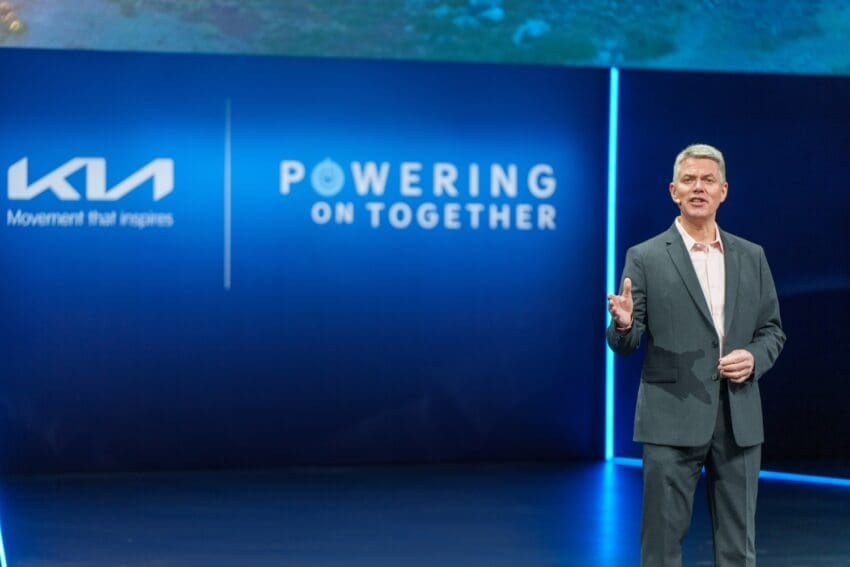
EVP: So what do you think we need to stimulate that retail interest?
Paul Philpott: The position that we’ve taken thus far has been around lower VAT rates for a period of time as the car buying public get to the position that says ‘actually, EV is right for me now’
And the real positive we’re seeing is that there’s not many EV buyers who then go, ‘Oh, it’s not really for me. I’m turning back to an ICE car’. Once you’ve had an EV and lived with an EV, then there’s little going back. People don’t enjoy the trips to the petrol station to fill up.
So some sort of VAT cut for consumers would be a very clear statement of the government’s support for take-up of EVs.
We’re putting huge amounts of investment into developing EVs, and we’re being hit with a stick that says, ‘if you don’t do this, you will be fined’.
There has to be some incentive for consumers to think ‘the government are real about this, they’re incentivizing me to take some new technology’. And the two together could be very powerful.
EVP: You mentioned that EV3 is the cheapest model in the lineup just now and EV2 is in the pipeline. Is that car going to be the next level of affordable beneath the EV3?
Paul Philpott: Yes. EV2 will be into 2026 and that will sit beneath EV3. As the requirements for your EV mix go up, you need to bring more volume EVs to the marketplace. What’s been a barrier to EVs? Many have said it’s been price. There’s also, of course, the confidence around charging and range anxiety, all the things we’ve been through and largely overcoming now. Still, price appears to be a barrier. EV3 makes one move, EV2 will make another move.
EVP: Away from the retail side of things, next year you’re delving into the world of commercial vehicles as well.
Paul Philpott: Yes, for the first time. At the end of next year we will launch our first electric van – our PV5 which we’re in the planning stage of right now. First and foremost, it’s a cargo van, but there are passenger versions going to be available for us for ride handling and other uses.
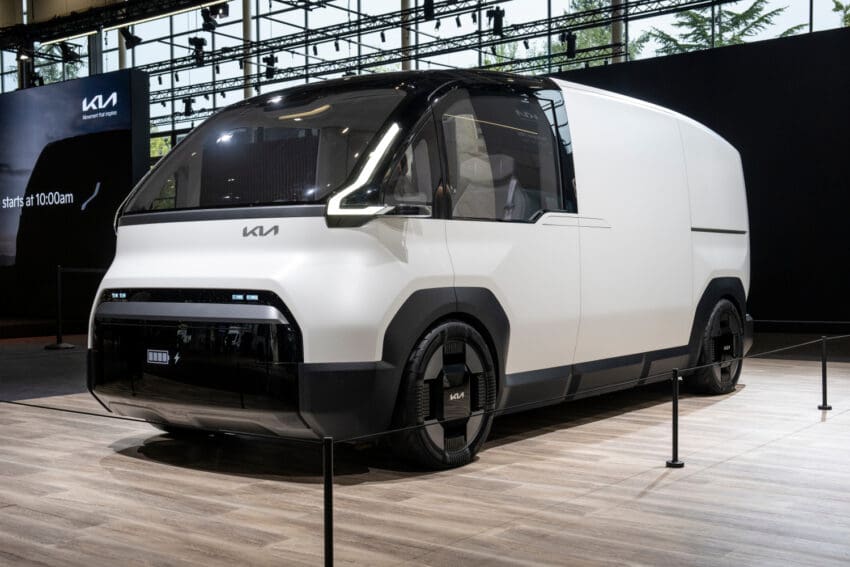
EVP: Looking at the broader market, we’re seeing a lot of new brands suddenly come in and effectively trying to do what Kia did in Europe 30 years ago. How do you see the impact of what is quite a large volume of new brands coming in in quite a short time?
Paul Philpott: I could glibly say, competition is all good, because it forces you to be better. I think that the Chinese brands are undoubtedly strong. They are coming to the UK with some very strong EV products at attractive price points.
So, yes, of course they represent extra competition for us. But some things will take time. Brand awareness takes an awful long time and investment to build that up. And to build the trust from consumers. So if you’re spending £30,000, £40,000 will you spend that with a brand you’ve never heard of and you don’t know that anyone else has owned?
This sort of word of mouth recommendation we know from our experience over the last 20 years, it takes time. And that gives us some time to continue to develop our own brand, our own product range.
They’ll also take time to really establish their supply chains and their aftersales network parts supply. That sort of thing takes time.
So, will they have an immediate impact on us in 2025? I think that impact will be modest. In the mid to long term, I think that could be a significant extra competitor in the marketplace. But car markets are by their very nature competitive and we may well see a shakeout of other brands.

